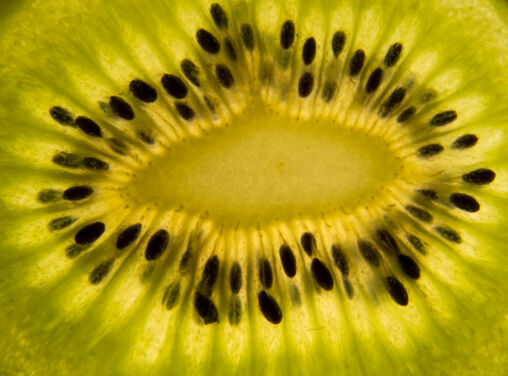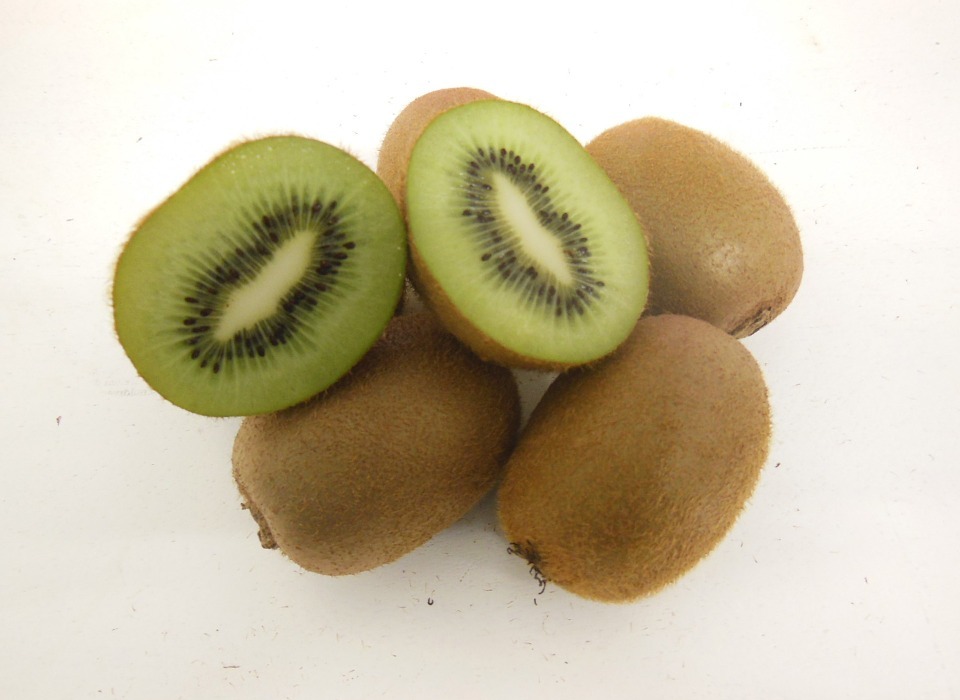This guide explores the nutritional value of kiwi for rabbits, outlining potential benefits and risks, and providing detailed information on how to safely introduce kiwi into your bunny's diet. We'll cover the recommended frequency and portion sizes, as well as the best preparation methods. We'll also delve into other fruits that are safe for rabbits, offering a comprehensive list of acceptable options for healthy snacking. Finally, we'll address common questions regarding fruit consumption for rabbits, offering expert insights to ensure your furry friend enjoys a balanced and nutritious diet.
Part 1: Understanding the Nutritional Value of Kiwi

1.1 Unveiling the Nutritional Profile of Kiwi
Kiwi is a nutrient-rich fruit, boasting an abundance of vitamins, minerals, and antioxidants. It's particularly notable for its high vitamin C content, which is essential for immune system support and tissue repair. Kiwi is also a good source of vitamin K, vital for blood clotting and bone health. It provides potassium, essential for maintaining fluid balance and muscle function. Additionally, kiwi contains dietary fiber, contributing to digestive regularity and satiety. The antioxidants present in kiwi help protect against cell damage and inflammation, further contributing to overall health.
1.2 The Role of Vitamin C in Rabbit Health
While kiwi offers a notable vitamin C boost, rabbits are able to synthesize their own vitamin C internally. Therefore, supplementing their diet with vitamin C-rich foods, including kiwi, should be done with caution and in moderation. Overconsumption of vitamin C can lead to imbalances and potential health issues.
Part 2: Exploring the Risks Associated with Kiwi for Rabbits

2.1 Sugar Content and its Potential Impact
Kiwi, like many fruits, contains a significant amount of sugar. While a small amount is acceptable, excessive sugar intake can lead to dental issues, obesity, and digestive problems in rabbits. Sugar contributes to plaque buildup on teeth, increasing the risk of dental disease. Excess sugar can also lead to weight gain, which can put strain on joints and organs. Furthermore, an overload of sugar can disrupt the delicate balance of gut bacteria in rabbits, leading to digestive problems.
2.2 Acidity: A Potential Digestive Issue for Rabbits
The high acidity of kiwi can irritate the delicate digestive tract of rabbits, potentially causing diarrhoea or upset stomach. Rabbits have a sensitive digestive system, and acidic foods can upset their natural balance, leading to discomfort and potential health complications.
Part 3: A Guide to Safe Kiwi Consumption for Rabbits
3.1 Portion Control: How Much Kiwi is Too Much?
Kiwi should only be offered to rabbits in moderation, and only as an occasional treat. For a small to medium-sized rabbit, a small piece of kiwi, no larger than a quarter of an inch in diameter, is a suitable portion. Larger rabbits can tolerate slightly larger portions, but it's essential to monitor their intake and ensure they don't overindulge.
3.2 Frequency: How Often Can Rabbits Eat Kiwi?
Kiwi should be offered only once or twice a week at most. Excessive consumption can lead to digestive issues and the potential for health complications.
3.3 Preparation Methods: Maximising Safety
Proper preparation is crucial to minimise the risks associated with kiwi consumption. Always wash kiwi thoroughly under running water to remove any dirt or pesticides. The skin of kiwi should be removed as it can be difficult for rabbits to digest and may cause digestive issues. Kiwi should be chopped into tiny pieces to prevent choking hazards.
Part 4: Monitoring for Reactions After Kiwi Consumption
4.1 Gastrointestinal Monitoring: Signs to Watch For
It's essential to monitor your rabbit closely for any adverse reactions after consuming kiwi. Look for signs of diarrhoea, loose stools, or stomach upset. These are indicators that the kiwi may be upsetting your rabbit's digestive system.
4.2 Dental Health Checks: Identifying Potential Problems
Check for any changes in chewing habits or difficulty consuming hay. Kiwi can contribute to plaque buildup, and if your rabbit is experiencing dental issues, it may have difficulty chewing their regular food.
4.3 Weight Management: Preventing Obesity
Monitor your rabbit's weight to ensure kiwi consumption doesn't contribute to obesity. While a small amount of kiwi is unlikely to cause significant weight gain, it's important to be mindful of overall dietary intake and ensure your rabbit maintains a healthy weight.
Part 5: Exploring Other Safe Fruits for Rabbits
5.1 Fruits Safe for Occasional Treats
While kiwi should be given in moderation, several fruits can be offered safely to rabbits in small quantities. These include:
- Berries: Strawberries, raspberries, blueberries, and blackberries are good options.
- Apples: A small slice without the core or seeds can be enjoyed occasionally.
- Bananas: A small piece of banana can be offered, but in moderation due to its high sugar content.
- Mango: A small piece of mango, without the skin or pit, can be given as a rare treat.
5.2 Fruits to Avoid: Potential Health Risks
Certain fruits pose health risks to rabbits and should be avoided entirely.
- Citrus Fruits: Oranges, lemons, grapefruits, and limes are acidic and can cause digestive upset.
- Grapes and Raisins: These fruits are toxic to rabbits and can lead to kidney failure.
- Avocados: Avocado contains a toxin that can be fatal to rabbits.
- Stone Fruits: Peaches, nectarines, plums, and cherries contain pits that can be choking hazards and the flesh can be high in sugar.
Part 6: Dietary Guidelines: Ensuring a Balanced Diet
6.1 Prioritising Hay: The Foundation of a Healthy Rabbit Diet
Hay should be the cornerstone of your rabbit's diet, comprising about 80% of their daily intake. Fresh, high-quality hay provides essential fiber, promotes healthy digestion, and helps wear down their teeth.
6.2 Fresh Leafy Greens: Essential for Nutritional Variety
Fresh leafy greens should make up around 10% of your rabbit's diet. They provide essential vitamins and minerals that support overall health.
6.3 Pellet Supplement: Completing the Nutritional Profile
A balanced pellet diet should be provided in moderation, typically around 5-10% of your rabbit's daily intake. Pellet diets provide a concentrated source of nutrients that can complement the hay and greens.
Part 7: FAQs: Addressing Common Concerns
7.1 Can Rabbits Eat Kiwi Skin?
No, rabbits cannot eat kiwi skin. The skin is difficult for them to digest and may cause digestive issues.
7.2 Is Kiwi Safe for Baby Rabbits?
It is not recommended to offer kiwi to baby rabbits. Their digestive systems are still developing, and kiwi can be too acidic and sugary for them.
7.3 How Often Can I Give My Rabbit Kiwi?
Kiwi should be offered as an occasional treat, no more than once or twice a week.
7.4 Can Rabbits Eat Kiwi Seeds?
Kiwi seeds should be removed before offering kiwi to your rabbit. The seeds can be difficult to digest and may cause intestinal blockage.
7.5 Is it Better to Give My Rabbit Fresh or Dried Kiwi?
Fresh kiwi is the preferred option. Dried kiwi is often high in sugar and may be difficult for rabbits to digest.
7.6 What if My Rabbit Eats Too Much Kiwi?
If your rabbit eats too much kiwi, monitor them closely for any signs of digestive upset, such as diarrhoea, loose stools, or stomach upset. If you notice any problems, consult with a veterinarian.
Part 8: Conclusion: A Holistic Approach to Rabbit Nutrition
Providing a balanced and appropriate diet is essential for your rabbit's longevity and happiness. While kiwi can offer some nutritional benefits, it should be offered in moderation and only as an occasional treat. Prioritise a diet rich in hay, fresh leafy greens, and a balanced pellet diet. Regular veterinary checkups are also vital for maintaining your rabbit's health and addressing any potential concerns. By following these guidelines, you can ensure that your furry friend enjoys a nutritious and fulfilling life.
Everyone is watching
-

Do Rabbits Lay Eggs? (The Surprising Truth)
OTHER TYPES OF PETSThis article will unravel the common misconception that rabbits lay eggs, exploring the fascinating world of r...
-

What's a Group of Rabbits Called? (A Comprehensive Guide)
OTHER TYPES OF PETSThis article delves into the fascinating world of rabbits, exploring the various terms used to describe a grou...
-

Can Rabbits Eat Grapes? A Guide to Safe Rabbit Treats
OTHER TYPES OF PETSThis comprehensive guide will explore the safety and suitability of grapes for rabbits, providing detailed inf...
-

Predators That Hunt Rabbits: A Guide to Natural Enemies
OTHER TYPES OF PETSI've always been fascinated by the circle of life, that delicate dance between predator and prey. Growing up ...
-

Are Rabbits Nocturnal Animals?
OTHER TYPES OF PETSThe question of whether rabbits are nocturnal animals is a fascinating one, with a surprisingly complex answer...
